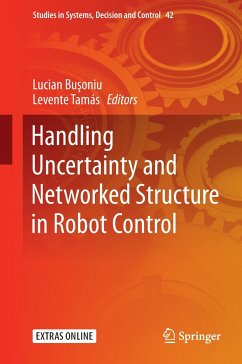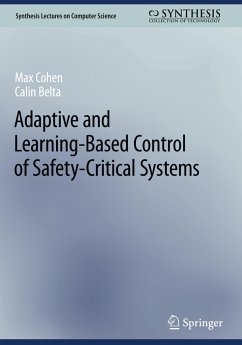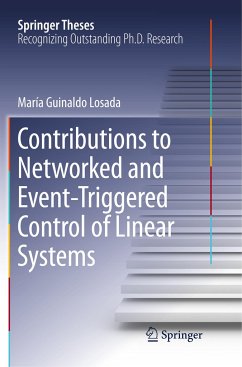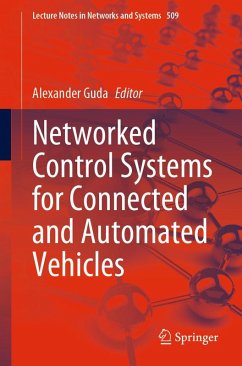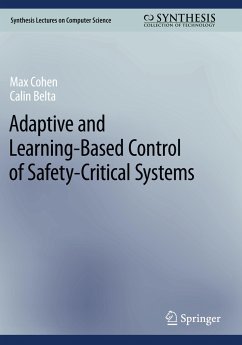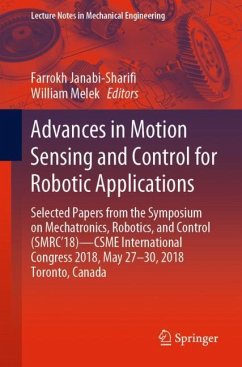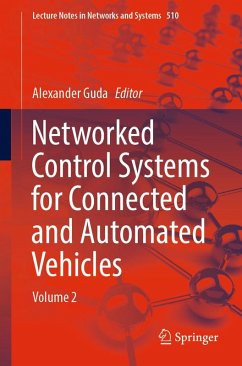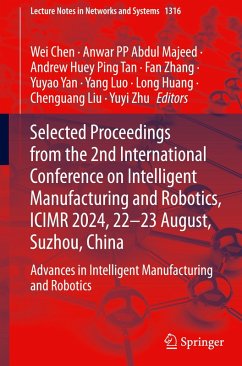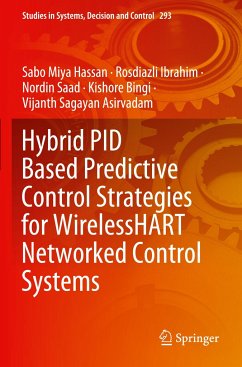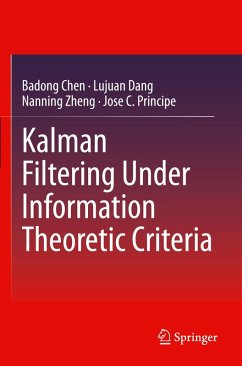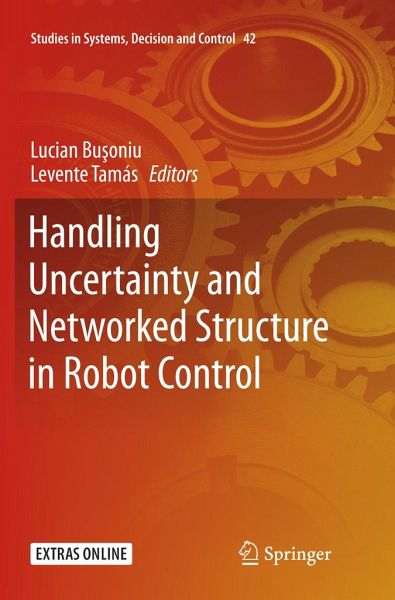
Handling Uncertainty and Networked Structure in Robot Control
Versandkostenfrei!
Versandfertig in 6-10 Tagen
76,99 €
inkl. MwSt.

PAYBACK Punkte
38 °P sammeln!
Thisbook focuses on two challenges posed in robot control by the increasingadoption of robots in the everyday human environment: uncertainty and networkedcommunication. PartI of the book describes learning control to address environmental uncertainty.Part II discusses state estimation, active sensing, and complex scenarioperception to tackle sensing uncertainty. Part IIIcompletes the book with control of networked robots and multi-robot teams.Each chapter features in-depth technical coverage and case studieshighlighting the applicability of the techniques, with real robots or insimulation. Pla...
Thisbook focuses on two challenges posed in robot control by the increasingadoption of robots in the everyday human environment: uncertainty and networkedcommunication. PartI of the book describes learning control to address environmental uncertainty.Part II discusses state estimation, active sensing, and complex scenarioperception to tackle sensing uncertainty. Part IIIcompletes the book with control of networked robots and multi-robot teams.
Each chapter features in-depth technical coverage and case studieshighlighting the applicability of the techniques, with real robots or insimulation. Platforms include mobile ground, aerial, and underwater robots, aswell as humanoid robots and robot arms. Source code and experimental data areavailable at http://extras.springer.com.
The text gathers contributions from academic and industry experts,and offers a valuable resource for researchers or graduate students in robotcontrol and perception. It also benefits researchersin related areas, such ascomputer vision, nonlinear and learning control, and multi-agent systems.
Each chapter features in-depth technical coverage and case studieshighlighting the applicability of the techniques, with real robots or insimulation. Platforms include mobile ground, aerial, and underwater robots, aswell as humanoid robots and robot arms. Source code and experimental data areavailable at http://extras.springer.com.
The text gathers contributions from academic and industry experts,and offers a valuable resource for researchers or graduate students in robotcontrol and perception. It also benefits researchersin related areas, such ascomputer vision, nonlinear and learning control, and multi-agent systems.





